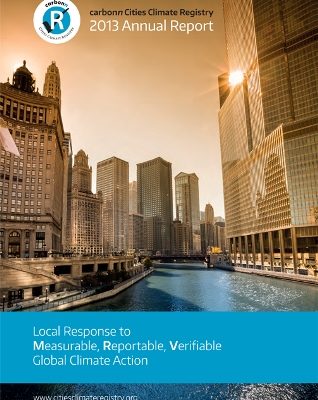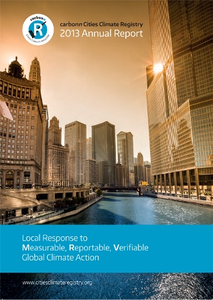Climate action transparency key to trustworthiness

422 local and subnational governments from 44 countries serving 12% of the world’s urban population are on track to trustworthiness, according to the carbonn Cities Climate Registry (cCCR) 2013 Annual Report released recently at the UN Bonn Climate Change conference in Bonn, Germany. New carbonn Cities Climate Registry (cCCR) report reveals that global voluntary reporting of local climate action triggers trustworthiness, access to finance and citizen engagement.
The cCCR is the world’s largest public database of local climate action. It contains 3870 mitigation and adaptation actions, 870 climate and energy commitments, and 771 inventories covering around 2.25 Gigatons Co2e of annual GHG emissions. The cCCR catalyzes the trustworthiness of local and subnational governments by improving transparency, accountability and comparability of local climate actions. 12 South Asian cities – Panaji, Pune, Shimla, Ahmedabad, Bhubaneswar, Coimbatore, Cochin, Hyderabad, Jaipur, Kota, Nagpur, New Delhi – submitted their climate data to cCCR.
“Global transparency builds trust in local and subnational governments and facilitates their access to finance and engagement of citizens”, says Gino Van Begin, Secretary General of ICLEI-Local Governments for Sustainability. ICLEI, the worldwide association of more than 1000 cities working on sustainability, operates the cCCR.
Trustworthiness is a key step in ensuring that local and subnational governments can finance local climate actions that could bring down global green house gas emissions and build resilience against climate change. An estimated US$ 200-210 billion per annum in 2030 is required to finance mitigation actions worldwide. Billions more are needed to fund adaptation actions.
According to the cCCR data, local and subnational governments have reported about US$ 145 billion worth of climate investments. 57% of these investments have been driven by local governments themselves. A funding gap of approximately US$341 million still needs to be filled to finance the 188 climate mitigation and adaptation actions on the cCCR. This figure is expected to rise as local and subnational governments gain more responsibility in the global efforts on climate change.
Worldwide, funding for climate actions is increasing with major financial institutions such as the Asian Development Bank, the Interamerican Development Bank, the European Investment Bank, the Global Environment Facility, the Global Energy Basel launching financial assistance programs specifically for local and subnational governments. Eligibility requirements are however still rigid, costly, and time consuming. According to the World Bank estimates, only a small percentage of the 500 largest cities in the developing countries are deemed creditworthy – about 4% in international financial markets and 20% in local markets. Further capacity development on this topic is currently being explored.
Lima, Peru, the host of the upcoming UN Climate Conference, is one of the few developing cities that has already achieved a credit-worthy status. Lima is a pioneer reporting city of the cCCR and has reported a total of six completed climate actions.
“Trustworthiness, good governance and transparency are key to credit worthiness. By voluntarily reporting to the cCCR, cities and regions not only create momentum for accelerating local climate action, they also demonstrate trustworthiness, accountability, and eligibility for receiving the much needed funds for climate mitigation and adaptation actions”, adds Gino Van Begin.
Download the cCCR report or visit www.citiesclimateregistry.org
